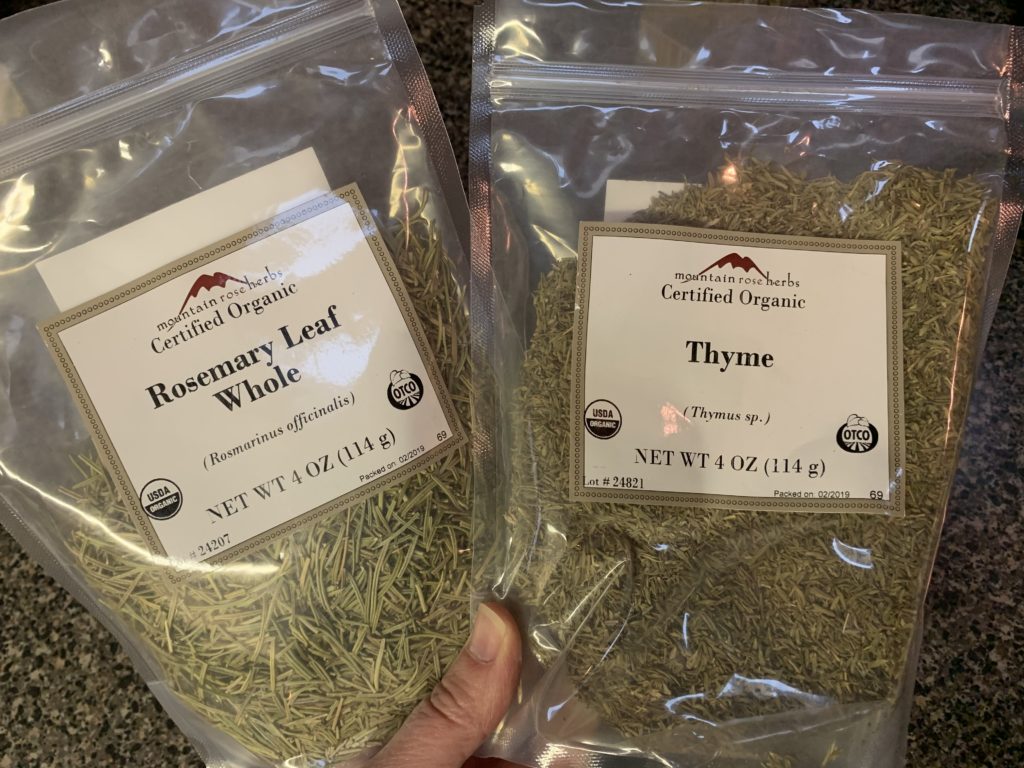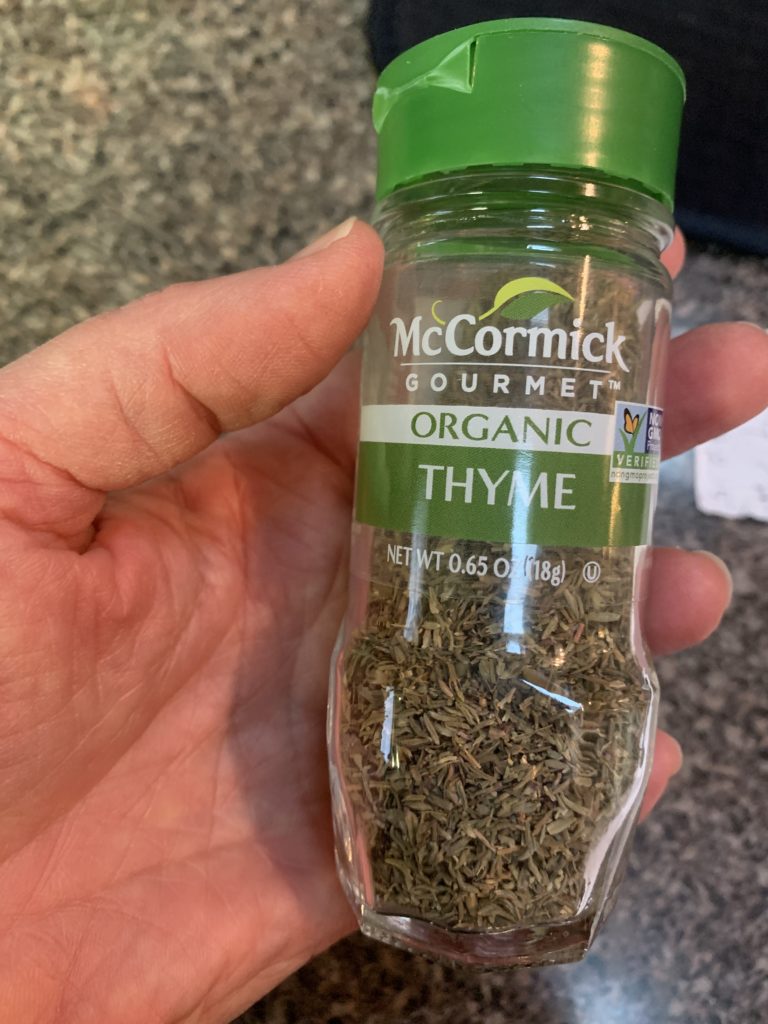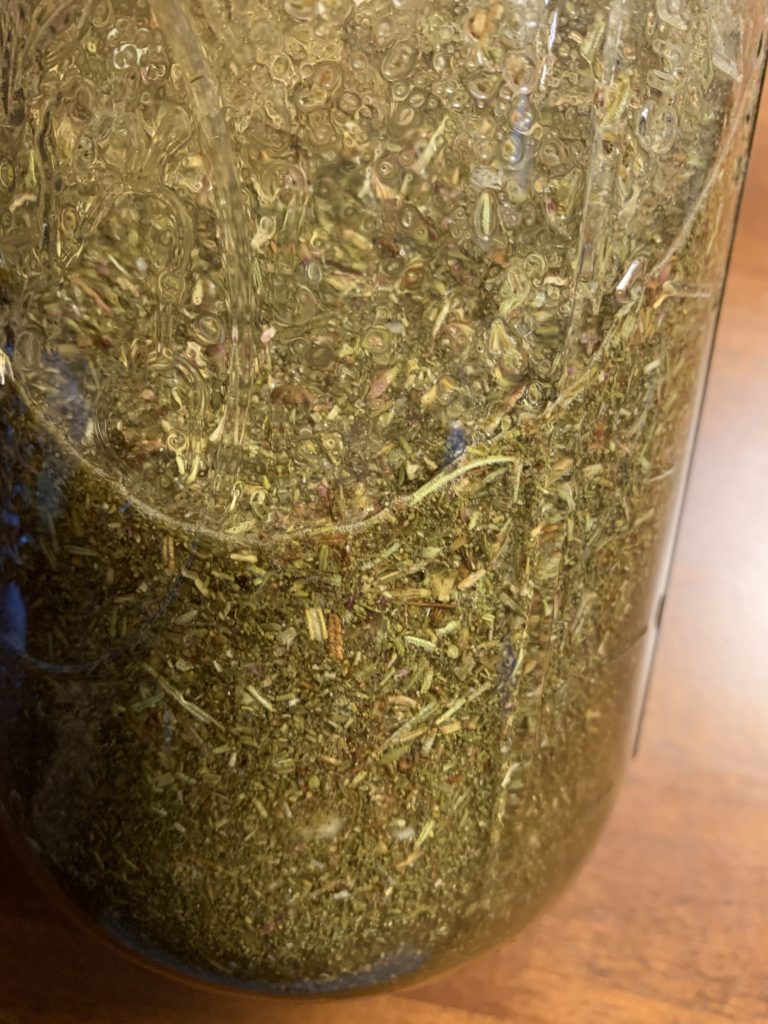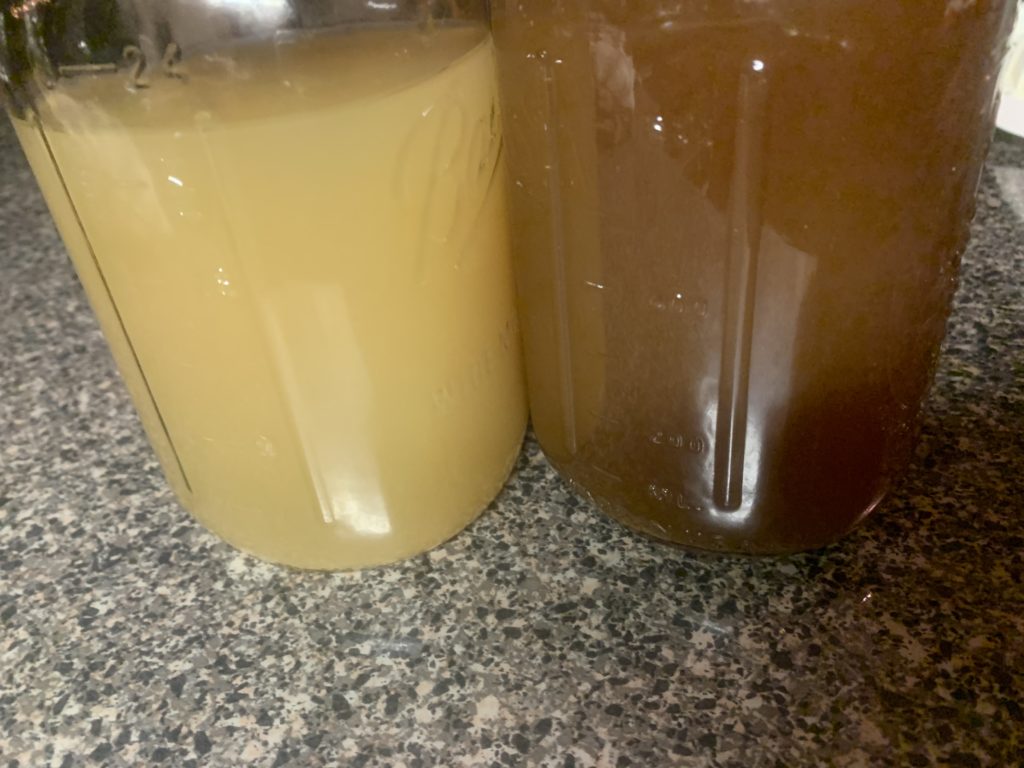One thing that we can count on every year is cold and flu season. This year has made even more clear the impact that viruses can have on us. It has also highlighted both the need for personal hygiene and the importance of supporting our immune system. Those things alone are still not often enough. Lucky for us, nature has a lot of options to help prevent illness by supporting our immune system, kill viruses before they can negatively impact us, and manage symptoms if we become ill.
A short list of things to have on hand includes:
- Clove Eugenia caryophyllata
- Garlic Allium sativum
- Ginger Zingiber officinale
- Honey
- Horseradish Armoracia rusticana
- Lavender Lavendula officinalis
- Onion Allium cepa
- Rosemary Rosmarinus officinalis
- Sage Salvia officinalis
- Thyme Thymus Vulgaris
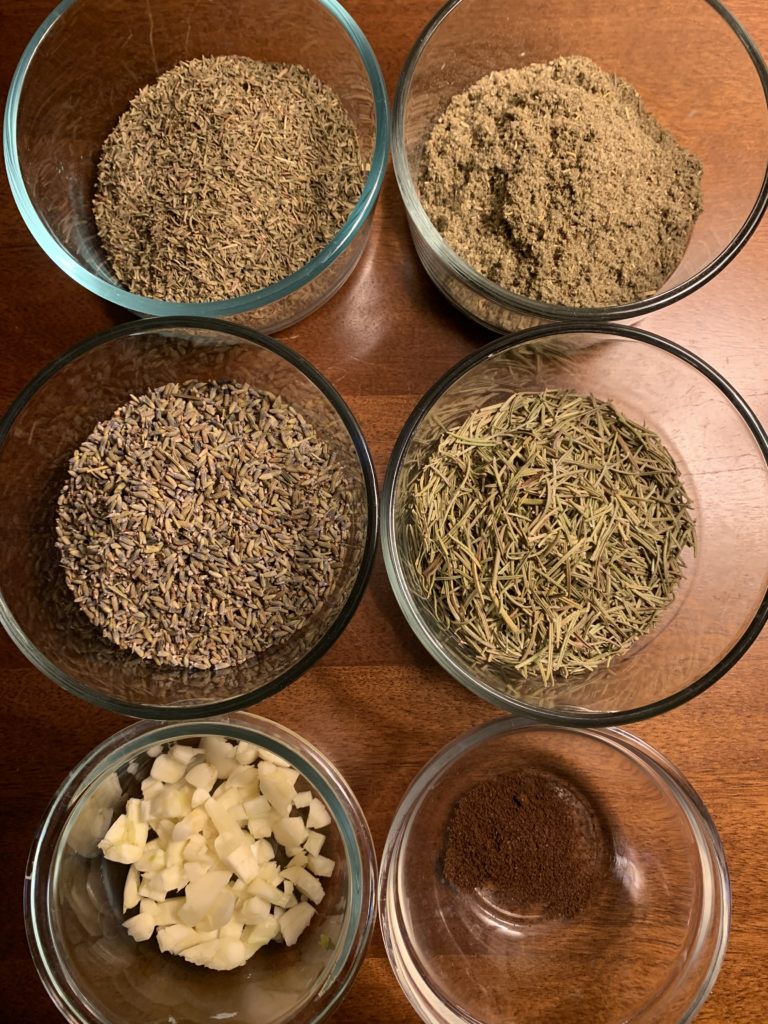
All of these items are usually available at your local co-op, farmers’ market or grocers. I suggest finding organic or growing your own pesticide free. My bulk herbs and spices come from Mountain Rose Herbs, but if you only need a small amount it makes sense to buy organic off the shelf.
Kill the Virus
Antibiotics are effective against bacterial infections and you should always see your physician when you are ill. The medical community says that antibacterials are ineffective against viruses.
Herbal antiviral, antiseptics and antibacterials can help you before you get ill. Garlic and onion are strong antivirals and antiseptics. Use them liberally! They say it will also help keep vampires away.
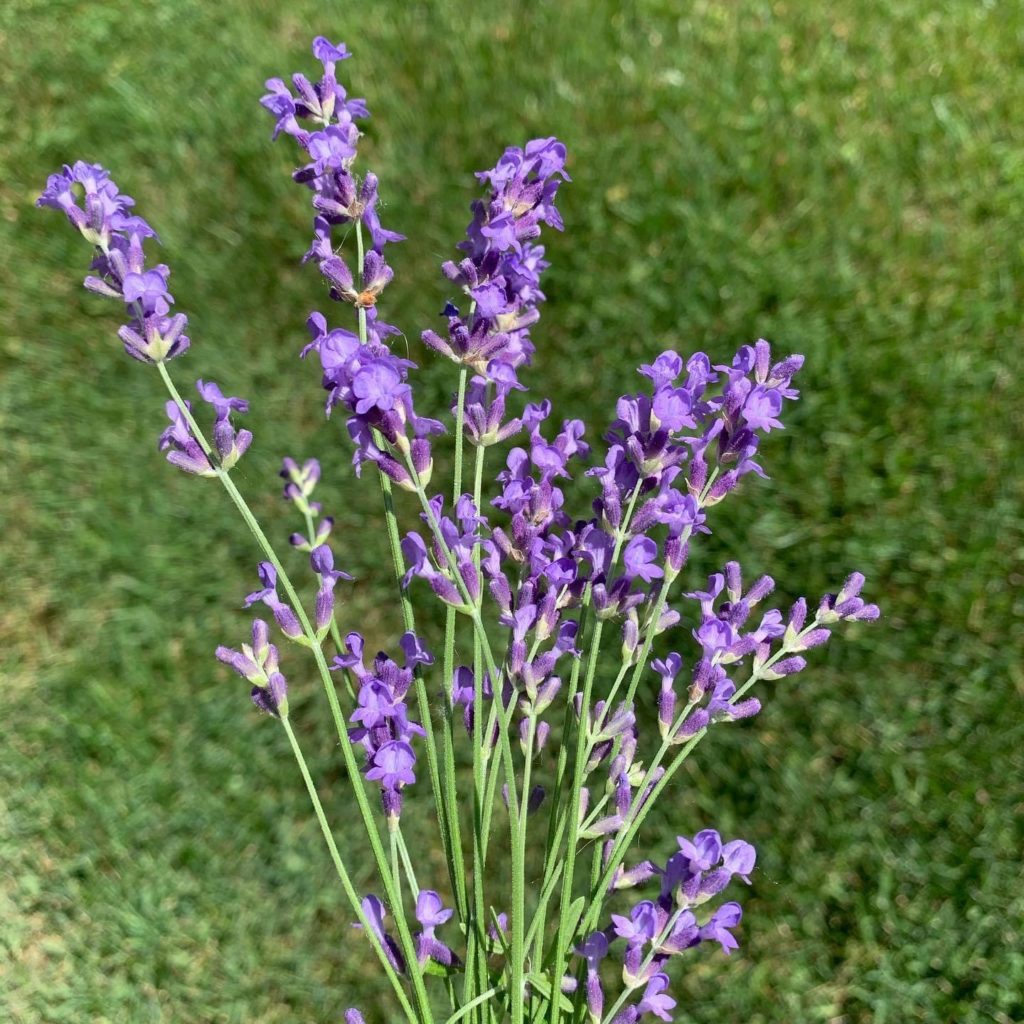
Sage, thyme and ginger have antibacterial properties, the latter two are also antiviral. They can be used in cooking or infused into teas, oils, or vinegars.
Lavender is antiseptic and, in some cases, may also relieve pain.
Cough and Congestion
Multi-purpose ginger is an expectorant and a decongestant, as are horseradish and garlic. Research has shown that honey is a more effective cough suppressant than a popular over the counter remedy. I like to keep a jar of honey and garlic cloves in the refrigerator to add to my tea, or eat by the spoon.
Delicate Digestion
Most of us have experienced stomach upset and know that it is no fun. Ginger soothes the digestive tract and reduces nausea. Crystalized ginger is a popular way of enticing youngsters to try some.
Clove is warming and stimulating. It supports the digestive tract.
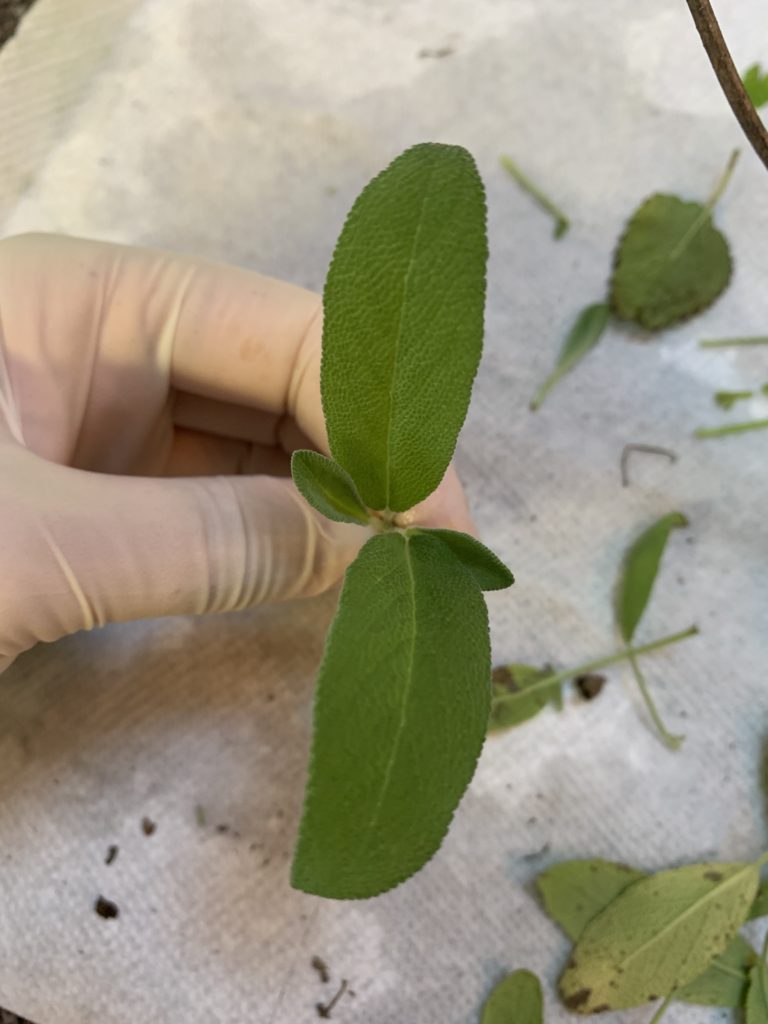
If a sore throat is preventing you from eating, sage tea is a throat soother. The tea can also be used to make popsicles. Sweeten them with some honey and you have a winner!
Make You Sweat
Need to sweat it out? Sage can help with that. Sage can also help bring balance if you are struggling with chills or night sweats.
Make These Early and Use Them Often
Two recipes that can help prevent, and even treat, colds and flu among other viruses, are Fire Cider and Four Thieves Vinegar.
There was a great deal of controversy recently regarding Fire Cider, which was made mainstream by Rosemary Gladstar. It ended up in a court case and lucky for any of us interested in herbalism, we can still use the name and make at will. Her full recipe can be found in Rosemary Gladstar’s Medicinal Herbs: A Beginners Guide, (This is not an affiliate link and I encourage you to support your local bookstore.), and you can watch her make it here.
Fire Cider traditionally consists of finely chopped onion, garlic, ginger root, horseradish root, and hot peppers infused into apple cider vinegar over a period of weeks. We leave out the hot peppers as nightshades are not typically included in our diets. Once it is strained, honey is added to taste.
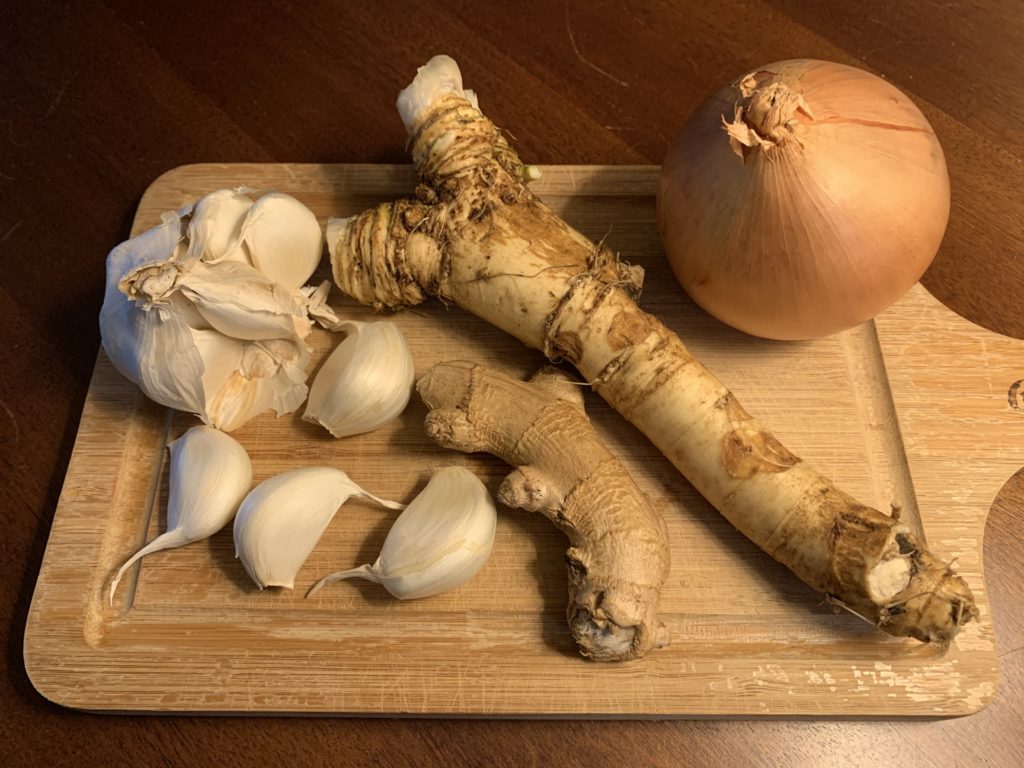
I use two onions, a full bulb of garlic, 1/2 cup of ginger root and 1/2 cup of horseradish. They get processed in the food processor and placed in sterilized jars. One quart of unpasteurized apple cider vinegar that has been warmed is then added. The jar is sealed, labeled, and set to the side for four weeks. It is then strained, local honey is added, and the jar goes in the refrigerator to be used as needed.
Four Thieves Vinegar is my favorite of the two. I use dried herbs because it reduces the chance of mold. I use one bulb of garlic, 1/4 cup dried lavender blossoms, 1/4 cup dried rosemary leaves, 1/4 cup dried sage leaves, 1/4 cup dried thyme leaves and a dash of clove. The process is the same, the herbs are placed in a sterilized jar and covered with warmed, unpasteurized apple cider vinegar. It is capped and set aside for four weeks. It is refrigerated after straining and I use it in salad dressings.
Take good care of yourself and I will see you soon!
